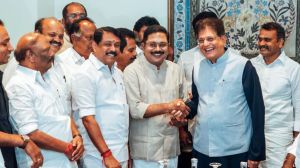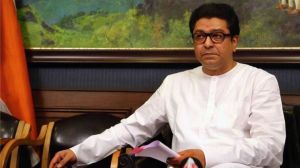The Spanish Armada
Granta attempts to do for Spanish-language writers what it did for young British and American writers. The editors conspiratorial game with the reader is to see how many of them become the next Llosa and Bolano.
I arrived so early in this world that I chose an unfinished country where no one had heard of either Norwegians or tomatoes
Pablo Neruda
The authors anthologised in Granta 113 were born in still-unfinished countries,but by the time they began publishing,their nations were on the way to completion. The cut-off mark for editors Aurelio Major and Valerie Miles is the year 1975: the end of Francos dictatorship in Spain. That was nowhere near the beginning of completion in Latin America,where democracy would still take a decade or two to take hold,but no writer in this volume was born before 1975. They might think they arrived too late in this world. But that isnt necessarily bad.
The date 1975,the disproportionate representation of Argentinians and Spaniards together,14 out of 22; with nobody from the Central American republics or the Caribbean and of male authors 17 raise questions,but Major and Miles still offer feast enough. The cliché about post-Boom Latin American authors is their lack of interest in the political,their preference for the personal,and their distaste for magic realism all the gods to be cast aside. Yet,as the editors assert: Many of these writers have not suffered in their own skin the social and moral circumstances that haunted their predecessors. The majority expressed scepticism,with varying degrees of nervousness or irony about the idea of an author having an active role in public life. Certainly no bidding for the presidency. But no moral and political stand?
Two things strike one immediately: the versatility of talent,such as in filmmaking or music. And the candidness about their own ambivalence,and about the general uncertainty in a world that has seen its grand narratives die. In fact,its own grand narrative could be the death of the grand narrative. So while there is irony as in Argentinian Pola Oloixaracs sophisticated demolition of the seriousness of the previous generations political engagement in Conditions for the Revolution nothing is dispensed with either. The tendency to outgrow or reject is conditioned by the inescapables of birth and literary identity. In Patricio Prons A Few Words on the Lifecycle of Frogs,the narrator is a provincial writer who comes to Buenos Aires to live beneath the living Argentinian author. Or,Lucía Puenzos semi-real Gabriel García Márquez teaching a course on screenwriting at a Havana workshop in Cohiba,a story more about the predatory male stranger. The turf war with the legitimacy of the Boom generation is not merely a one-way anxiety of influence.
This volume is Grantas attempt at doing for Spanish-language writers what it did for young British and American writers earlier. The editors conspiratorial game with the reader is to see how many of them become the next Mario Vargas Llosas and Roberto Bolanos 10 years hence. These are unabashedly cosmopolitan writers who know the capitals of the world as well as they do their own,if not more. They know Norwegians and buy their tomatoes at the mall. What they seem to know much less of are the heartlands of their native lands. Peruvian Santiago Roncagliolo,in Stars and Stripes,captures this Yanqui-loving mood through the tale of a once-affluent,tragedy-struck boy from Lima who later emigrates to the US with his mother. Or,a young girls infatuation with Mormon missionaries Federico Falcos In Utah there are Mountains too.
These stories,claim the editors,are quotidian. That is not so much about everyday detail but an overwhelming consumerism the hotels and malls of a globalised world that both attract and repel the writers. In fact,through all the variations in setting and tone,experimentation with perspective and narrative device,and mixing of genres,there is a certain sameness about it all. Bolivian Rodrigo Hasbúns The Place of Losses injects stories into stories and,in the last section,switches the narrator from the male half of a relationship to the woman,both of them aspiring writers attending a workshop. But just how often characters are academics or young workshop writers betrays the limits of imagination and self-imposed circumscription. Now,is that a deliberate comment on the world after Big Ideas Puenzos narrator never finds García Márquezs Big Idea? Or an admission of failure?
The fantastic or absurd,if not magic realism per se,is here too. Perhaps the most powerfully disorienting story is Spaniard Andrés Barbas The Coming Flood,in which a discarded porn star,with failing health after four breast implants,turns to prostitution in order to finance one last surgery to have a horn fitted to her forehead. When the operations done,she vomits out her old self and identity. She isnt inhuman,but makes the first successful transit to our post-human identity,a world where even sex is emotionally painful and distressing something many of these writers seem to concur on,as if they have made a discovery. In a post-political world,the only meaning exists in our myriad personal domains. If only that were meaningful enough!
The translators,whose ranks include Edith Grossman and Daniel Alarcon,have done a splendid job in bringing the new literature in the worlds second most-spoken language to Anglophone readers. Spanish may soon outstrip English in the US,as it has already done on the Internet. Yet,one test of the enduring capacity of these authors may still be,unfortunately,the speed and volume of their translations into English in 10 years time. If anything,as Spaniards enmeshed in a continental identity or Latin Americans in self-imposed exile,they will not hit the street to protest,no matter how sharply they keep polishing the dialect of the tribe.
- 01
- 02
- 03
- 04
- 05































